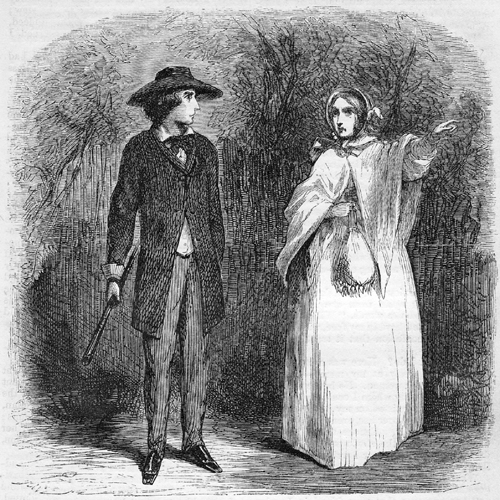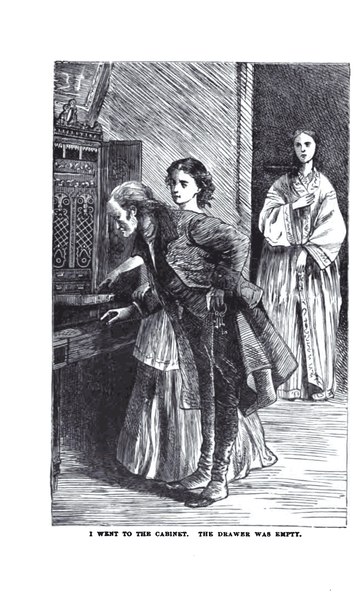 Ayant créé une alerte pour cet auteur, j'ai reçu aujourd'hui un mail de eBay m'informant qu'un livre de Noël Vindry venait d'être proposé à la vente. Comme pas mal d'amateurs de romans policiers, j'entends parler en très grand bien de cet écrivain - grand spécialiste français des chambres closes et crimes impossibles dans les années trente - depuis des lustres, mais n'arrive jamais à mettre la main sur ses livres. Ils sont en effet extrêmement rares, sauf ceux de sa dernière période au Masque qui de l'avis général ne comptent pas parmi ses oeuvres majeures. Et qui dit rares, dit chers. Très chers. Or donc, si vous souhaitez acquérir Le double alibi, dans son unique édition de 1934, il vous en coûtera... 100 euros. Et ce n'est même pas le plus cher que j'aie vu pour un livre de Vindry; je me souviens avoir croisé une fois La Bête hurlante à 140 euros sur Abebooks. Dommage que les héritiers de Vindry ne touchent pas un sou de ces ventes; ils en tireraient une rente appréciable. En tout cas ce n'est pas encore aujourd'hui que j'aurai un Juge Allou dans ma bibliothèque, et il en sera ainsi tant que Vindry ne sera pas réédité.
Ayant créé une alerte pour cet auteur, j'ai reçu aujourd'hui un mail de eBay m'informant qu'un livre de Noël Vindry venait d'être proposé à la vente. Comme pas mal d'amateurs de romans policiers, j'entends parler en très grand bien de cet écrivain - grand spécialiste français des chambres closes et crimes impossibles dans les années trente - depuis des lustres, mais n'arrive jamais à mettre la main sur ses livres. Ils sont en effet extrêmement rares, sauf ceux de sa dernière période au Masque qui de l'avis général ne comptent pas parmi ses oeuvres majeures. Et qui dit rares, dit chers. Très chers. Or donc, si vous souhaitez acquérir Le double alibi, dans son unique édition de 1934, il vous en coûtera... 100 euros. Et ce n'est même pas le plus cher que j'aie vu pour un livre de Vindry; je me souviens avoir croisé une fois La Bête hurlante à 140 euros sur Abebooks. Dommage que les héritiers de Vindry ne touchent pas un sou de ces ventes; ils en tireraient une rente appréciable. En tout cas ce n'est pas encore aujourd'hui que j'aurai un Juge Allou dans ma bibliothèque, et il en sera ainsi tant que Vindry ne sera pas réédité.  Pourquoi ne l'est-il pas? C'est une question qui fait le tour de la communauté polardière depuis des décennies. Ce ne sont apparemment pas les héritiers qui s'y opposent; plusieurs Juge Allou ont été réédités... en Espagne dans les années 80, ce qui me fait regretter d'avoir laissé mon espagnol en jachère car ces éditions-là se trouvent facilement et à bas prix. Il faut donc en conclure que ce sont éditeurs qui ne sont pas intéressés, et de fait on voit mal qui dans le paysage éditorial français actuel pourrait s'intéresser à Vindry. Le Masque était le choix le plus "logique" mais a tourné le dos au roman d'énigme qui fut longtemps son terrain d'élection. Grands Détectives? Autrefois ouverte aux grands auteurs du passé, la collection est désormais réservée aux auteurs contemporains et se spécialise dans le roman policier historique. Rivages/Mystère n'est plus et les romans d'énigme, déjà fort peu nombreux, ont disparu du catalogue Rivages depuis la mort de Claude Chabrol. En outre, les éditeurs ne font pas dans la philanthropie; ils ne publient que des livres pour lesquels un marché existe, et cela ne semble pas être le cas ici. La seule tentative récente de réédition, un omnibus réalisé par Roland Lacourbe qui reprenait A travers les murailles, n'a rencontré que peu d'écho. Le roman d'énigme, en particulier dans sa forme "impossible", avait connu un regain d'intérêt dans les années 90, notamment grâce au succès des rééditions de John Dickson Carr. La page semble tournée désormais, les amateurs d'énigmes se tournant vers la télévision et abandonnant les rayonnages aux fans de thrillers et de noir. Resterait l'édition numérique, qui a déjà permis outre-Manche et outre-Atlantique à des auteurs comme J.J. Connington ou Stuart Palmer de retrouver une visibilité qu'ils n'avaient plus dans les librairies traditionnelles, mais le marché est encore balbutiant en France et rien ne peut se faire sans l'accord des ayant-droits. Ou l'espoir qu'un petit éditeur ait un coup de coeur; c'est après tout une presse universitaire de province, Les Presses Universitaires du Septentrion, qui a enfin permis aux lecteurs français de découvrir Gaudy Night de Dorothy L. Sayers.
Pourquoi ne l'est-il pas? C'est une question qui fait le tour de la communauté polardière depuis des décennies. Ce ne sont apparemment pas les héritiers qui s'y opposent; plusieurs Juge Allou ont été réédités... en Espagne dans les années 80, ce qui me fait regretter d'avoir laissé mon espagnol en jachère car ces éditions-là se trouvent facilement et à bas prix. Il faut donc en conclure que ce sont éditeurs qui ne sont pas intéressés, et de fait on voit mal qui dans le paysage éditorial français actuel pourrait s'intéresser à Vindry. Le Masque était le choix le plus "logique" mais a tourné le dos au roman d'énigme qui fut longtemps son terrain d'élection. Grands Détectives? Autrefois ouverte aux grands auteurs du passé, la collection est désormais réservée aux auteurs contemporains et se spécialise dans le roman policier historique. Rivages/Mystère n'est plus et les romans d'énigme, déjà fort peu nombreux, ont disparu du catalogue Rivages depuis la mort de Claude Chabrol. En outre, les éditeurs ne font pas dans la philanthropie; ils ne publient que des livres pour lesquels un marché existe, et cela ne semble pas être le cas ici. La seule tentative récente de réédition, un omnibus réalisé par Roland Lacourbe qui reprenait A travers les murailles, n'a rencontré que peu d'écho. Le roman d'énigme, en particulier dans sa forme "impossible", avait connu un regain d'intérêt dans les années 90, notamment grâce au succès des rééditions de John Dickson Carr. La page semble tournée désormais, les amateurs d'énigmes se tournant vers la télévision et abandonnant les rayonnages aux fans de thrillers et de noir. Resterait l'édition numérique, qui a déjà permis outre-Manche et outre-Atlantique à des auteurs comme J.J. Connington ou Stuart Palmer de retrouver une visibilité qu'ils n'avaient plus dans les librairies traditionnelles, mais le marché est encore balbutiant en France et rien ne peut se faire sans l'accord des ayant-droits. Ou l'espoir qu'un petit éditeur ait un coup de coeur; c'est après tout une presse universitaire de province, Les Presses Universitaires du Septentrion, qui a enfin permis aux lecteurs français de découvrir Gaudy Night de Dorothy L. Sayers. Mais en attendant, que faire? Lire et relire A travers les murailles. Garder un oeil sur eBay, PriceMinister et Abebooks. Et faire les brocantes, en croisant les doigts pour trouver la perle rare, vendue par cette providence du chineur: la bonne poire qui ne sait pas ce qu'elle vend (elle existe, je l'ai rencontrée plus d'une fois)

